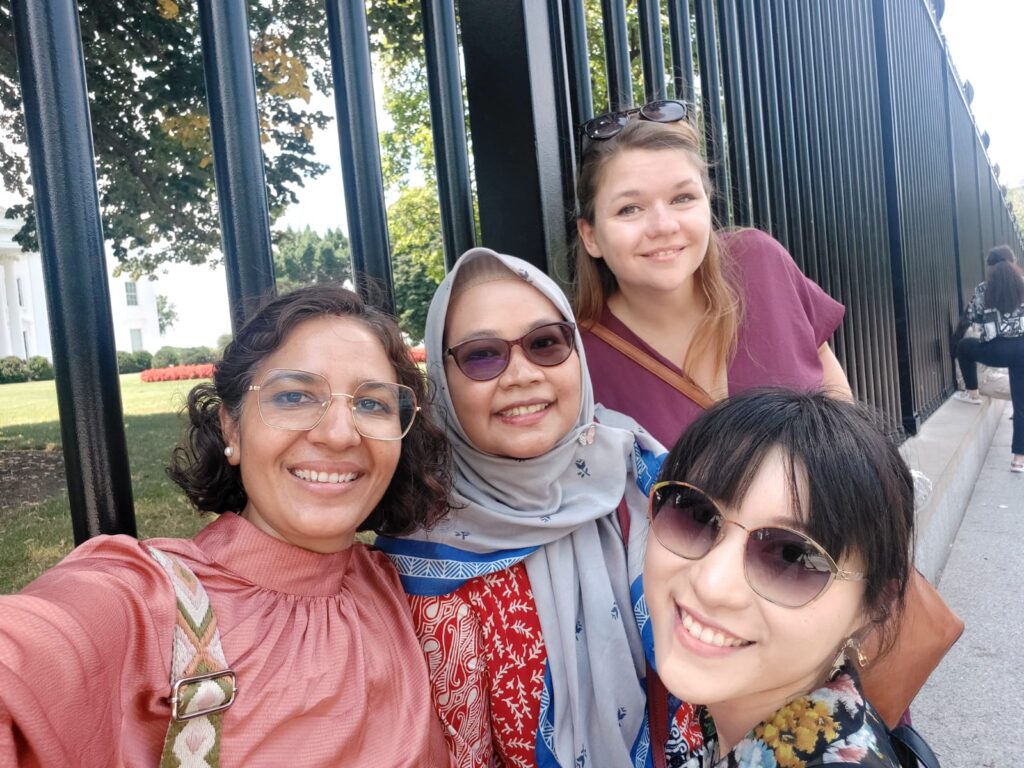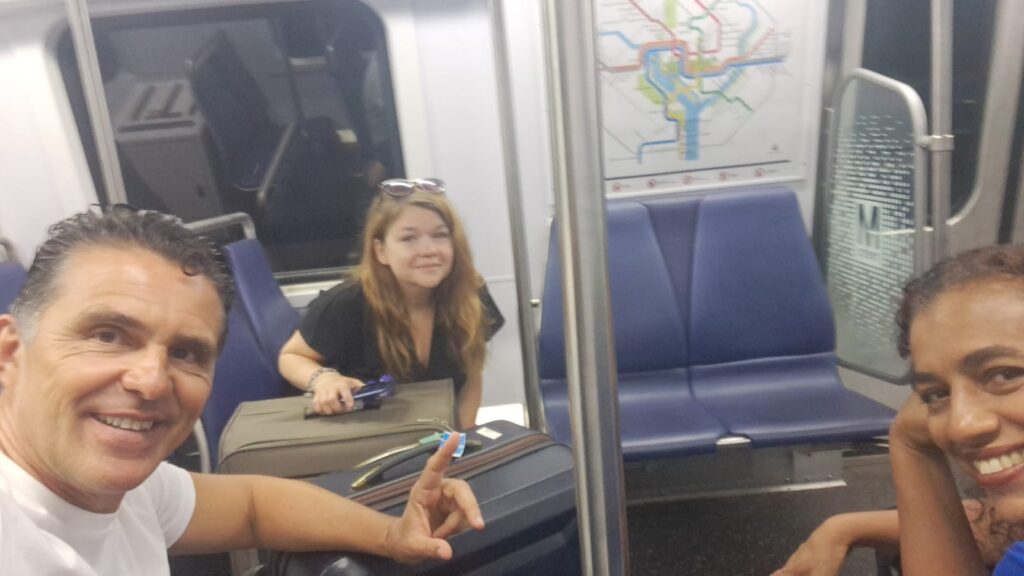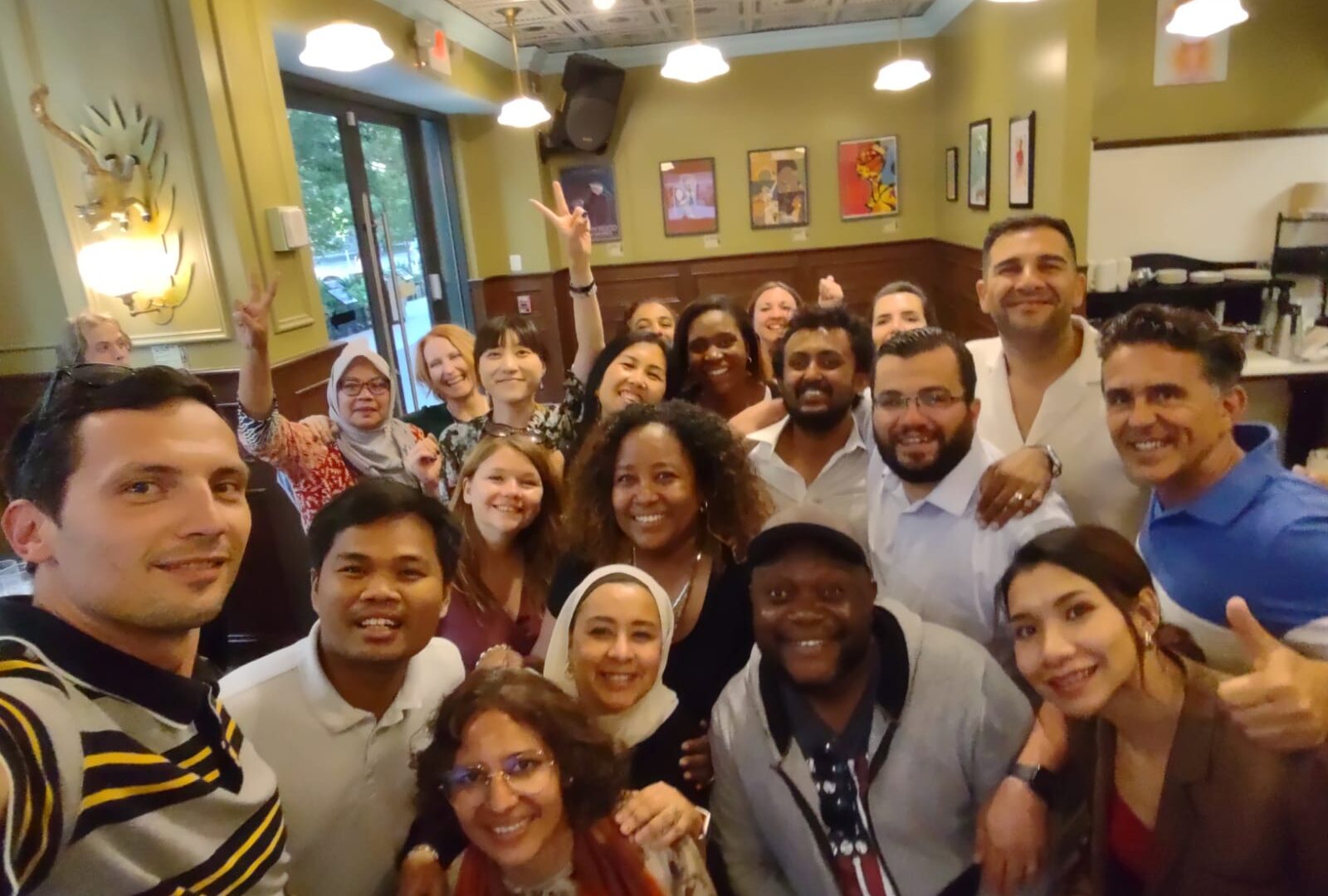Eighteen scholars of journalism, communication and the media, researchers and journalists from eighteen different countries entered the Cronkite School of Journalism, at Arizona State University in Phoenix on June 4, 2023. It was a hot day in Phoenix and the Study of the United States Institute was just about to start. A study about journalism, technology and democracy in the US. The scholars were selected in a very competitive program to spend six weeks in Arizona, Los Angeles and Washington D.C. and study the media, technologies, institutions and education in a country far from their homes.
The scholars were sitting in room 444, a room that would become their frequent meeting place in Phoenix, looking at each other, trying to match the photos and biographies from the program book with faces. They had never met each other before in person and barely knew each other’s names. They were smiling timidly, exchanging information about weather, food, their trips to the US and their jet leg. When the program started, led by professor Dawn Gilpin and coordinator Amy Schweim, scholars gave formal introductions about themselves, their universities and careers.
Thirty-eight days later, on July 12, 2023, during the last day of the program, scholars were hugging each other tightly at the Busboys and Poets restaurant in Washington, D.C. They were smiling, crying, saying goodbye with promises that they will see each other again. It was the last day of the program and after visiting the National Public Radio and exploring the capital city, scholars were just finishing their last dinner together. By that time, they not only had gotten to know each other very well but had become inseparable friends. They knew about each other’s personalities, life habits and lifestyles, favorite music and food, teaching methods, and sleep patterns. They knew about each other’s families, countries, pasts, plans and dreams.

I was standing by a table at the restaurant and looking at a such an incredible and extraordinary group. Even though we come from different countries, have different habits, beliefs and cultures, we got along very well. We shared similar interests and a mutual love for journalism, the media and education. It is incredibly awarding to be part of such an amazing, intelligent, different, courageous group of people. I had never had that feeling and might never have it again. I felt accepted and understood.
I don’t like farewells and I told myself not to cry. After a couple of minutes, someone pulled me into the middle of the group and I started receiving strong hugs and kisses. I heard some very nice and encouraging words – words that I don’t often hear – and tears came to my eyes. It was a mixture of joy and sadness. The joy of spending incredible moments of my life with such an amazing group of people; sadness that it had all come to an end and that I might not see some of the scholars ever again. For the rest of that night, I was fighting to hold back my tears.
The experience of the SUSI program is simply incredible. During six weeks, we learned about the media and media education in the US, new technologies and trends, the political situation in Arizona, the position of Indigenous media, the experiences of border journalists. We were in driverless cars in Phoenix, took hop-on/hop-off bus tours in Los Angeles, swam together in the Pacific Ocean. We danced salsa, Arabic and Indian dances, listened to a live play by a Mexican band, sang karaoke, listened to songs from Suriname, Taiwan, Lebanon, Indonesia, Indonesia, Kyrgyzstan, tried different food and visited incredible museums in Phoenix and Washington. At the Musical Instrument Museum in Phoenix, we could marvel at the human creativity and humanity’s passion for music shared by all the populations, and at the National Museum of Natural History in Washington, D.C. at the incredible beauty and diversity of our planet. The African American Museum in Washington D.C. and the Heard Museum in Phoenix demonstrated the cruelty of mankind, but also the strength and power of those fighting for freedom and justice. Martin Luther King’s words: ‘’If you can’t fly then run, if you can’t run then walk, if you can’t walk then crawl, but whatever you do you have to keep moving forward,’ still ring in my ears.
But the most rewarding and meaningful experience of the SUSI program is spending time with and learning from such an incredible group of people. As professor Dawn Gilpin said, the eighteen countries represented in this group will no longer be just spots on the map, buy they will be places where all of us have friends now. We spent great time together, were happy to spend time together and were smiling most of the time. We learned about the media, media laws and education in different countries, about culture, food and music in different parts of the globe. I learned about natural beauties in Kyrgyzstan, about history of Bangladesh, about best singers in Egypt, about newspapers in India, about media literacy in Malawi, about beauty standards in Taiwan, and recipes in Lebanon. I learned from the gratitude, politeness, helpfulness, courage, worldviews, philosophy, working habits and believes from SUSI scholars. From every scholar I will take one part with me. A part that will make me not only a better professional but also a better person.
Farewell dear SUSI scholars. I hope we see each other again. Many thanks Dawn, Amy and all the speakers for such a great program. Until then, whatever we do, we need to keep moving forward.

